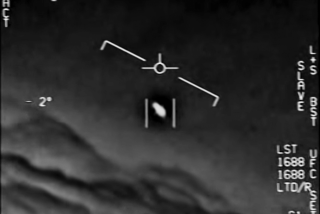Scientists Ponder Earthlings’ Reactions : If There Is Life on Other Planets, What Do We Do?
- Share via
BRIGHTON, England — The search for life beyond the solar system has moved out of the snickering backwaters of science and onto center stage as scientists struggle with perplexing questions about what to do if they find it.
Scientists attending the 38th Congress of the International Astronautical Federation here are trying to come to grips with such fundamental questions as how to announce such a momentous discovery without causing public alarm or governmental instability.
There is no evidence yet that intelligent life exists anywhere beyond the Earth, of course. And such a discovery, if it comes, could be decades, perhaps centuries, away.
But scientists today are hard at work trying to develop a means of dealing with success, if they ever achieve it.
A wide range of projects are either under way or slated for the years ahead, all aimed at intercepting signals from a distant planet that would reveal the existence of other worlds.
The effort, which until recently has mainly involved dreamers on the fringes of science, was given a big boost here by National Aeronautics and Space Administration administrator James C. Fletcher, who devoted nearly his entire speech to the search for life elsewhere.
The finding of extraterrestrial life, as Fletcher told nearly 1,000 people at the meeting, “would eclipse all previous discoveries of mankind.”
No one is entirely sure just how such news would be received by humans on Earth, but some are sounding warnings that danger lurks at the end of the search.
“The news of the existence of extraterrestrial intelligence could be devastating,” said Roberto Pinotti, a sociologist from Florence, Italy. “It will affect every field of human activity.”
Most scientists believe only a highly advanced society would have developed radio transmitters that could be detected from Earth, meaning that whoever we discover is likely to be far ahead of us.
“Contact with superior beings would be shattering,” Pinotti said, because it would mean humans might suddenly find themselves inferior.
Panic a Possibility
Others warned that the discovery of life elsewhere could cause many earthlings to panic, and even the superpowers might find themselves inferior to the newly discovered society, and thus subject to internal instability.
Most scientists, however, rejected such dire scenarios, contending instead that humans would greet the news that they were not alone with great joy.
As for panic in the streets, some said not to worry.
“If a starship landed in a parking lot in my native California,” mused science fiction writer David Brin, “most injuries would come from people trampling each other running toward it.”
If there is a single consensus among those involved in the search, it is that success would change the world forever, and the first few days would be sheer madness.
Need for Verification
Much of the discussion here concerned how to verify such a discovery before the news leaks out to the public and how to reassure humans that they have nothing to fear--assuming, of course, that such extraterrestrial beings are friendly and not belligerent.
Many said it would be impossible to withhold news of the discovery until it could be formally announced. A Polish scientist thought that should be easy. Just tell the press not to print it, he said.
Others said such a momentous discovery would leak to the public very quickly, thus necessitating some means of verifying it immediately.
One scientist conceded that he was not even sure what he would do if he suddenly found himself in possession of such a discovery.
Place in History
To the discoverer would go instant and lasting fame, surely a Nobel Prize, and a unique place in history.
“You can’t predict what you yourself are going to do,” he said.
Fletcher’s comments at the congress reflect the growing legitimacy in the search for extraterrestrial intelligence.
And soon, sources here told The Times, President Reagan is to receive a detailed briefing on the status of a NASA project set to begin in 1992 that will use several radio telescopes around the world, linked together through a powerful multichannel analyzer, to sort through the galaxy for a decade, searching for radio transmissions that could only have been broadcast by an advanced civilization.
The search for extraterrestrial intelligence is profoundly difficult because there are so many stars that astronomers could search for decades without ever looking in exactly the right spot. NASA’s project is designed to sort through more stars much more quickly, thus greatly enhancing the chances of success.
By the time the project has ended, Fletcher said, “it will have exceeded the sum total of all previous searches by 10 billion times.”
Many radio telescopes around the world are engaged in the effort. Most scientists involved in the project believe they are looking for a signal sent deliberately in our direction by an advanced civilization that is trying to contact us.
A few think inadvertent signals--such as those sent out from Earth by powerful early warning radar systems near the North Pole--are more likely to be detected.
“I think we’re going to find somebody’s garbage,” said one scientist.
Others believe the signals will be passive indicators of the impact of intelligent beings on a distant solar system.
That could take the form of evidence of “civilizations that have harnessed the energy of their star or galaxy,” revealing the presence of a “super civilization,” said Jean Heidmann of the Observatoire de Paris, France.
Subtle Sign
However, it may well be that the first sign of life will be far more subtle.
“The message may be really weird,” said Allen Tough of the University of Toronto, Canada. “It may be in a form that will be completely unexpected.”
That will place a special burden on the discoverer, because the desire to reveal the message will be diluted by the fear of being wrong, he said.
Some attending the meeting here know that feeling well.
In 1973 Duncan Lunan thought he had discovered discrepancies in earlier studies of a distant star--discrepancies suggesting some sort of artificial radio transmission. Lunan thought he had discovered extraterrestrial intelligence and he so informed the world in a technical publication in April of that year.
Alas, however, the discrepancies themselves turned out to be wrong, and Lunan was forced to concede that he had not discovered anything at all.
“It was great fun while it lasted,” he said.






